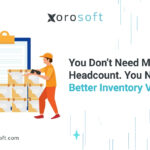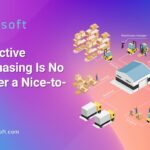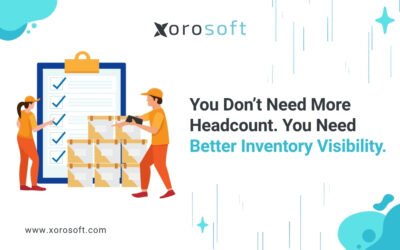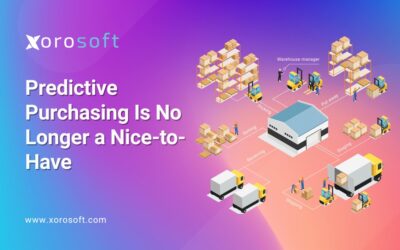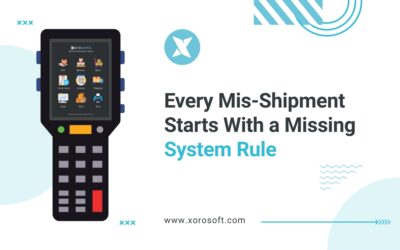
Profit Looks Good on Paper—So Why Does It Feel Missing?
You’re shipping more orders than ever. Sales are growing. The P&L looks solid.
However, if you’re still wondering why there’s never enough cash in the bank, it’s probably not your financials—it’s your ERP profit tracking (or lack thereof).
In fact, most fast-growing brands don’t lose money on the P&L.
They lose it in the invisible chaos between disconnected tools—missed signals, manual rework, fulfillment errors, and inventory misfires that don’t show up until it’s too late. As a result, profit erodes silently.
The Operational Cost of Disconnected Systems
Let’s say you’re running:
-
Shopify for orders
-
QuickBooks for accounting
-
Excel for forecasting
-
A 3PL for fulfillment
-
A separate WMS
-
Plus a few Google Sheets that only one person understands
At first, this setup might seem efficient. However, as your business scales, gaps begin to appear.
You:
-
Oversell because inventory sync lags
-
Reorder based on gut feel, not real data
-
Spend hours fixing fulfillment errors
-
Rely on finance to chase disconnected numbers
Consequently, the profit loss is real, but none of it shows up clearly on your income statement. Instead, it reveals itself through operational inefficiencies, shipping errors, and delayed insights.
For example, you may believe a SKU is in stock—but by the time finance catches the mismatch, you’ve already oversold.
Why Traditional Workflows Don’t Support Profit Visibility
Here’s the root of the problem:
You’re relying on tools that were never built to talk to each other.
This creates:
-
Fragmented data
-
Delayed inventory updates
-
Untrustworthy financials
-
Misalignment across teams
Because these systems lack integration, every department sees a different version of the truth.
As a result, teams stop trusting the numbers. Eventually, leadership starts making decisions based on assumptions rather than facts.
What’s more, these issues compound as you grow.
Thus, without real-time ERP profit tracking, you’re left operating blind.
How a Unified ERP Drives Real Profit Clarity
Modern ERP platforms aren’t just for billion-dollar corporations.
They’re now accessible to mid-market brands that need control and clarity as they scale.
By unifying your systems, you gain:
-
Real-time inventory tracking across all channels
-
Accurate fulfillment with fewer errors and returns
-
Procurement automation based on true demand
-
Accounting that reflects what’s actually happening
-
Team-wide visibility with shared dashboards
Furthermore, every decision is made from a single source of truth.
Likewise, your finance and ops teams work with the same data.
More importantly, this alignment makes ERP profit tracking possible.
In other words, you finally see where money is made—or lost.
How Xorosoft ERP Simplifies ERP Profit Tracking for Scaling Brands
Xorosoft ERP was designed for high-growth businesses that can’t afford disconnects.
Instead of stitching together spreadsheets, Xorosoft gives you a cloud-native, all-in-one system that unifies:
- Inventory
- Built-in WMS
- Fulfillment
- Procurement
- Accounting
Here’s what sets it apart:
-
Real-time syncing with Shopify, Amazon, 3PLs, and EDI
-
Native WMS—not a bolt-on
-
Fast deployment, no long implementation delays
-
Seamless automation across purchasing, fulfillment, and finance
-
Hundreds of API integrations to connect your tech stack
-
Complete ERP profit tracking with built-in dashboards
Not only does this reduce overhead, but it also improves speed and accuracy.
Moreover, it’s built specifically for brands that scale across multiple sales channels.
That is to say, Xorosoft isn’t just another ERP. It’s your operational brain.
That’s why we’re:
-
#1 in Ease of Use on G2
-
Available on the Shopify App Store
Examples of Where Margins Slip Without You Knowing
Here are 3 real margin drains we’ve seen vanish after implementing Xorosoft:
-
Overselling on Amazon due to inventory sync lag
-
Reorders based on outdated data, leading to overstock and dead inventory
-
Accounting rework every month because returns, shipping costs, and discounts weren’t mapped to the right GL accounts
In contrast, unified ERP systems catch these issues in real time.
Therefore, margin leakage stops before it becomes a trend.
In the same way, return fraud, reshipping costs, and stockouts get minimized.
For this reason, clients who implement ERP profit tracking often see profitability rise—without increasing revenue.
ERP Profit Tracking Reveals the Profit You’ve Been Missing
If your profits don’t match your top-line growth, don’t just dig into the P&L.
Instead, look at your systems. Look at your workflows.
More often than not, it’s not your pricing or product—it’s the chaos between disconnected apps.
Xorosoft ERP solves this by bringing everything together.
To summarize, it enables real-time decision-making and margin clarity.
📊 Explore the full feature set
🎯 Book a live demo
📈 See what other brands are doing

